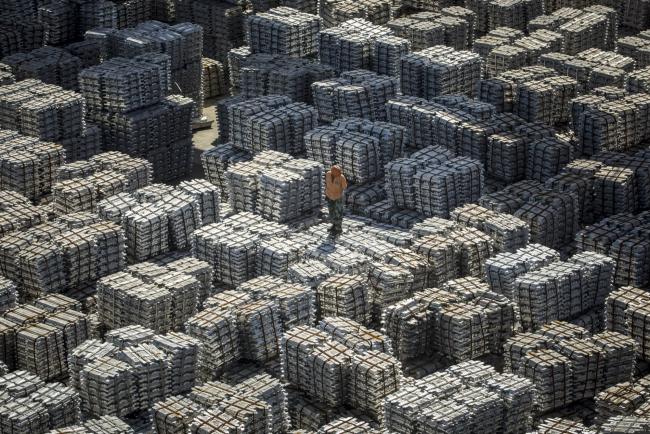This post was originally published on this site
https://d1-invdn-com.akamaized.net/content/pic0d9d25390de1213c97a8a53aeee1e38f.jpg
While the Trump administration’s import levies are aimed at protecting against excess foreign supply of the metal, concerns have persisted that aluminum from China — the world’s biggest producer — is still flooding into the market.
That’s because some Chinese supply could first be sent to another nation that isn’t subject to the duties. It’s then melted and reformed before being shipped again, masking its true origin. Criticism about surplus metal entering the U.S. via such transshipment and re-labeling to circumvent trade laws has preceded the Trump administration.
Under the proposed new U.S. rules, importers will be required to identify the country from which the aluminum was originally obtained. They will also need to get a license for shipments. The program is modeled on a steel-import monitoring system that’s been in place for years.
The Commerce Department’s regulations, which are subject to a 30-day public-comment period and would take another 30 to 90 days to be implemented, would give customs a strengthened tool to more quickly identify and react to improper trading of U.S.-bound aluminum.
Combating Evasion
“It is yet another affirmation of our commitment to use all available tools to combat circumvention and evasion of duties,” Commerce Secretary Wilbur Ross said in statement. “Today’s proposed regulations are an important step forward in ensuring that trade in aluminum is free, fair, and reciprocal.”
Under the new North American trade deal signed last year, the U.S., Canada and Mexico all agreed to ramp up efforts to trace where metal comes from originally in an effort to stop the diversion of shipments from other nations to dodge tariffs. After the agreement, Canadian Prime Minister Justin Trudeau acted to beef up the government’s power to respond to dumping of aluminum and steel in the country.
As recently as December, the Aluminium Association of Canada complained that the new North American trade law has failed to implement rules that would prevent transshipment of metal through Mexico. Chief Executive Officer Jean Simard said it made Mexico “more or less China’s North American backyard to dispose of the products of its overcapacity.”
The U.S. Commerce Department is making the proposal just as the coronavirus pandemic has crushed demand in everything from retail goods to bank financing to commodities.
Demand Hit
American aluminum has been particularly affected, with all domestic smelters under water at current prices. Alcoa (NYSE:AA) Corp., the biggest U.S. producer, said last week that it would curtail all production at one of its smelters in Washington state.
If implemented, the new rules would include monitoring imports of so-called semi-finished aluminum products. Alcoa has for years complained about China’s surging output of such products, which aren’t subject to the Asian country’s export taxes.
Semi-finished, not primary aluminum, is the principal form of China’s market penetration into the rest of the world, which Alcoa Chief Executive Officer Roy Harvey said in January is flooding the global market and effectively displacing output of the primary form of the metal.
China is the world’s largest exporter of the primary and semi-finished forms of aluminum, according to CRU Group. The country exports about 6 million metric tons annually, with about 90% to 95% of that being semi-fabricated products.
©2020 Bloomberg L.P.

